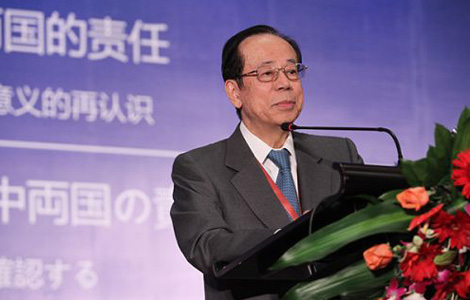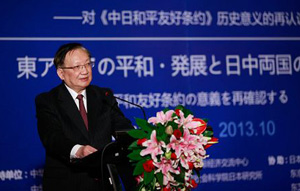China providing space training
Updated: 2013-10-29 01:13
By WANG QIAN (China Daily)
|
||||||||
Experts boosting capabilities of programs in developing economies
China is providing training for space professionals from developing economies, enhancing their capacity in satellite operations and space technology application.
"Hundreds of space engineers and scientists from several countries including Pakistan and Nigeria have received training in China since 2005," Li Lan, deputy general manager of the communications satellite division of China Great Wall Industry Corp, said on Monday.
China Great Wall Industry Corp is the country's only commercial provider of international launch services and satellite in-orbit delivery.
The latest training was provided to 35 Bolivian space experts, who completed their studies on Monday.
They are part of 78 Bolivian space professionals who received space-technology training here in preparation for the country's first telecommunications satellite, Tupac Katari, to be launched in late December.
The training is part of the Tupac Katari program signed in 2010 between the Bolivian Space Agency and China Great Wall Industry Corp.
According to the Bolivian Space Agency, all 78 trainees are between the ages of 30 and 50 and specialize in scientific fields such as chemistry, physics, mathematics, computer science, electronics and mechanical engineering.
Li said training in satellite operations and space technology is now an important part of the satellite export contracts the company signs with international clients.
For example, in July 2007, the company delivered a communications satellite in orbit to Nigeria, along with a 15-year operational support service and a comprehensive training program.
Communications satellites are used in these countries to improve radio, television and telecommunications services, long distance education, medical care and Internet access.
Li said the training covers satellite operations, space technology and engineering that can greatly enhance the trainees' knowledge of satellite operations.
"When these trainees return to their countries, they will play important roles in their country's space industry development," Li said.
Guillermo Jorge Chalup Liendo, the Bolivian ambassador to China, spoke highly of the training project, saying Bolivia has taken the first step to show the world its capacity and potential in the space industry.
"The trainees will become the backbone of Bolivia's space industry," he said.
Ericka Ricaldez, a 31-year-old trainee from Cochabamba in Bolivia, told China Daily the training was very valuable, and she hopes she will contribute to the country's space industry development.
"I am so glad to see Bolivia is taking the first step in the direction of having space industry and technology," she said, adding it still has a long way to go.
The Tupac Katari program involved an investment of $300 million including construction, launching and orbit placement of the telecommunications satellite, setting up ground stations in La Paz and Santa Cruz and the training project, according to China Great Wall Industry Corp. Of that investment, about $250 million came from a loan from China Development Bank.
Li said the satellite will be launched from the Xichang Satellite Launch Center in Sichuan province in late December.
Named after an Aymara Indian leader who fought Spanish colonialists, the satellite is intended to improve communications, long distance education and medicine in rural areas of Bolivia.
China Great Wall Industry Corp, a subsidiary of China Aerospace Science and Technology Corp, has launched 43 satellites and assisted in 37 more launches for international clients from 18 countries and regions, according to the company's latest statistics.
 ABC apologizes for 'Kimmel' joke
ABC apologizes for 'Kimmel' joke
 Snowfall hits many areas of Tibet
Snowfall hits many areas of Tibet  Lang Lang named UN Messenger of Peace
Lang Lang named UN Messenger of Peace Antiquated ideas source of Abe strategy
Antiquated ideas source of Abe strategy
 Storm wrecks havoc in S Britain, leaving 4 dead
Storm wrecks havoc in S Britain, leaving 4 dead
 Women's congress aims to close income gap, lift status
Women's congress aims to close income gap, lift status
 Sao Paulo Fashion Week held in Brazil
Sao Paulo Fashion Week held in Brazil
 Serena beats Li Na for WTA title
Serena beats Li Na for WTA title
Most Viewed
Editor's Picks

|

|

|

|

|

|
Today's Top News
Is Obama's lack of transparency really his fault?
San Diego Symphony debuts at Carnegie
Lang Lang takes on UN `Messenger of Peace’ role
At 72, China’s ‘Liberace’ still wows fans
Penn State: 26 people get $59.7m over Sandusky
China providing space training
Miscommunication causes conflicts
ABC apologizes for 'Kimmel' joke
US Weekly

|

|






